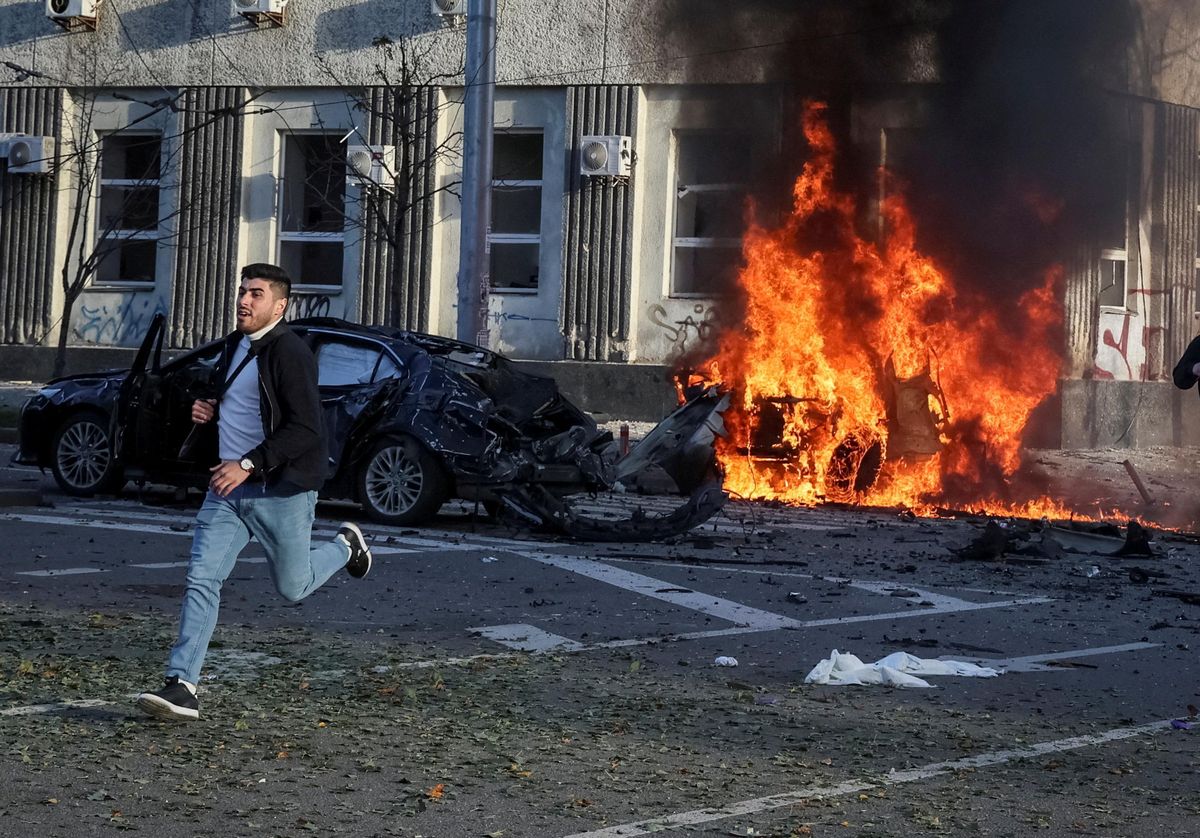Putin lashed out after Crimea bridge blast
On Monday, Russia unleashed a barrage of air strikes against major Ukrainian cities, including Kyiv, Kharkiv, and Odesa. Lviv, which had been considered a safe haven for those fleeing the fighting in eastern Ukraine, was also hit. Although we don't have a death toll yet, it'll be high because the attacks occurred during rush hour and targeted civilian areas. The missiles also destroyed critical infrastructure, knocked out power, and sent civilians into bomb shelters for the first time in months.
It's a steep military escalation by the Kremlin following Saturday's explosion on the bridge linking Crimea to Russia, which Vladimir Putin blamed on Ukrainian "terrorists." Putin ordered the strikes before meeting his national security council, presumably to come up with a response to the blast. No official word from the Kremlin, but Chechen strongman Ramzan Kadyrov, a hardliner and staunch Putin ally, voiced his support for the reprisal, saying that he’s finally 100% satisfied with the way the “special military operation” in Ukraine is being carried out. Kadyrov and far-right commentators had been calling for Moscow to take revenge by hitting Ukraine’s key infrastructure.
The ferocity of Monday's offensive highlights how much the Kerch Strait Bridge means to Russia ... and to Putin. The only physical connection Russia has with the peninsula it seized eight years ago was opened with much fanfare in 2018 by Putin himself to solidify the annexation. Apart from that symbolism, it also has great strategic value as an essential supply link to Russian forces fighting in southern Ukraine. The Russians got it partially up and running by Sunday, but the damage on the bridge will likely restrict Russian military movements, forcing Moscow to rely on maritime ferries for troop and equipment logistics as well as the hard-to-traverse “land bridge” through the four Ukrainian regions the Kremlin recently annexed.
Doom & gloom at World Bank/IMF meetings
On Monday, the World Bank and the IMF kick off their annual autumn meetings in Washington, DC. The gathering comes at a gloomy time for the global economy, battered by inflation, higher borrowing costs, and persistent supply chain disruptions. The IMF is expected to lower its 2023 growth forecast and estimates that countries accounting for at least one-third of the global economy will enter a technical recession — two consecutive quarters of GDP decline — over the next year. Why? Europe is reeling from an energy crunch linked to Russia's war in Ukraine, while China's economy is in the doldrums thanks to the fallout from zero-COVID and a property market slump. Meanwhile, the US is trying to tame inflation with shock therapy in the form of higher interest rates that might solve the problem at home but will make it harder for developing nations to pay off their debt (and a strong US dollar won't help anyone either). What can the IMF do to ease the pain? Offer financial support to countries deep in the red — if they commit to the reforms that'll allow them to pay back the money. But that’s what they’re supposed to do anyway, right?This article comes to you from the Signal newsletter team of GZERO Media. Sign up today.

















